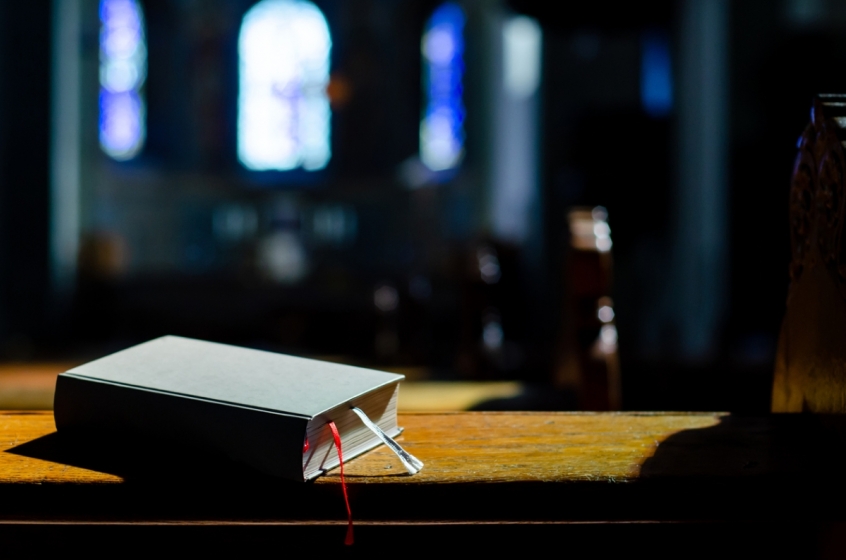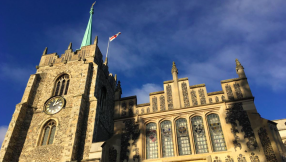
It is sad that the Church of England clergy surveyed by The Times have not made the connection between their own low morale and the left-wing bureaucratic institution they work for.
The fact that a sizeable majority of the 1,200 serving priests who responded (62.6%) want the national Church to drop its official stance against pre-marital sex shows the extent to which the institution now mirrors the permissive society.
The majority (59%) who said they plan to offer same-sex blessings to couples is in line with February's vote in the General Synod's House of Clergy when 111 voted for the move, with 85 against.
One of the letters to The Times in response to the survey pithily pointed out that imitating secular society has not exactly been a successful growth strategy for the C of E.
Andrew Brown, of East Grinstead, West Sussex, wrote: "It was depressing to read that clergy want significant changes in teaching to bring the church more in line with public opinion. If Jesus, the apostles and the early church had done that the Christian faith would not have survived beyond the 1st century. Thankfully the countercultural gospel they proclaimed challenged public opinion and churches that remain faithful to the biblical message rather than public opinion have often grown rather than declined."
That decline is clearly taking its toll on frontline clergy morale. Two-thirds of respondents said that they expected church attendance to continue to fall over the next 10 years with just 10.5% expecting growth.
The significant number of the priests surveyed, nearly a third, who said they had "seriously considered" quitting the ministry in the last five years ought to be of grave concern to the C of E's bishops, as should the figure of 40% who said they felt "over-worked or over-stretched".
The working conditions of bishops have not changed greatly since motor-cars and telephones came into fashion in the early 20<sup>th century. They may have lost their chauffeurs in the past 30 years or so due to cost-cutting by the Church Commissioners, but they have not faced the massively increased workload laid on frontline clergy. Due to dioceses amalgamating parishes for financial reasons, more clergy from the dwindling band are having to run around more churches, with the growing administrative burden that involves.
Frontline parish clergy numbers have fallen by almost half since 1959 from 13,075 to 7,210 in 2020 while the number of diocesan bishops has declined by just four. The number of suffragan (assistant) bishops has declined by just three. The number of archdeacons, senior clergy in dioceses with a significant central administrative role, has actually increased from 106 to 129.
In November 2021, after the first meeting of the General Synod since the elections in the previous September, the Rev Dr Ian Paul, a clergy member for Southall and Nottingham, presented the figures on his Psephizo blog. This was after a new lay member for Leicester, retired professor of material sciences Roy Faulkner, asked a question about "the numbers respectively of usual Sunday attendance, parochial clergy, diocesan posts, archdeacons, and suffragan and diocesan bishops over the last 100 years, say in 1920, 1950, 1980, 2010, and today".
Dr Paul commented: "What is striking here is that the number of clergy has declined by around 45% from 1959 to 2020, whilst the number of senior leaders (archdeacons plus bishops) has actually increased from 219 to 235. At the same time, according to Christian Research, attendance has declined from around 2,900,000 to around 800,000, a drop of some 75%."
But is not such elitism entirely to be expected in left-wing bureaucratic institutions? Is not the top-heavy nature of the 'progressive' C of E exactly in line with how centralising bureaucrats tend to behave in socialistic organisations? They increase their own power at the centre at the expense of the frontline.
Ditch orthodox Christianity and in the present cultural climate in the West bloated bureaucracies will emerge under the neo-Marxist regime. Unfortunately, in their enthusiasm to 'modernise' the Church's spiritual teaching, frontline clergy do not seem to understand the underlying ideological reason why they are having such a hard time compared to the episcopal elite.
Julian Mann is a former Church of England vicar, now an evangelical journalist based in Lancashire













